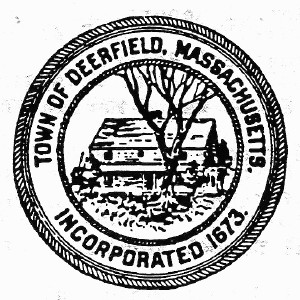Editorial: Charter vote sets right path for Amherst
| Published: 12-22-2016 8:11 PM |
The Amherst Charter Commission set a wise course this week in voting to study a mayor-council form of government that would replace representative Town Meeting, the Select Board and town manager.
Monday’s 5-4 vote by the Charter Commission is the first step in what we expect will be a thorough examination of the pros and cons of replacing the structure of town government that has been in place since 1954.
Voters this year signaled encouragement of big changes when they overwhelmingly decided to create the Charter Commission. It was approved by a 2,039-1,340 margin, winning support from more than 60 percent of the voters who cast ballots in March.
On election night, Jerry Guidera, a spokesman for Amherst for All, the group that campaigned for the Charter Commission, said the margin showed residents believe it is “time for a new form of government.”
Among the concerns raised is the effectiveness of Town Meeting as a legislative body when it generally meets for only a few nights during the spring and fall, and whether it adequately represents the town’s increasingly diverse population.
Commission Chairman Andrew Churchill, a former School Committee member, points out that Town Meeting cannot operate as a true legislature because it can only approve or defeat measures but not change them.
Other critics have voiced frustrations that Town Meeting operates too independently from the rest of Amherst’s government, and that its 240 members – who routinely are elected without opposition – are not accountable to voters. Bernie Kubiak, a member of the Finance Committee, said at the Charter Commission’s first public hearing in May, “We have 240 people who essentially govern anonymously.”
While some members of the Charter Commission talked about tweaking the current system of government – reducing Town Meeting’s size or giving more power to the Select Board, for example – it is time for Amherst to consider a more dramatic change. The town’s charter has not been overhauled in more than six decades, when the Legislature in 1954 approved an act calling for Amherst to create the job of town manager and shift from an open to representative Town Meeting.
Article continues after...
Yesterday's Most Read Articles
 Locking up carbon for good: Easthampton inventor’s CO2 removal system turns biomass into biochar
Locking up carbon for good: Easthampton inventor’s CO2 removal system turns biomass into biochar
 Northampton man will go to trial on first-degree murder charge after plea agreement talks break down
Northampton man will go to trial on first-degree murder charge after plea agreement talks break down
 Police report details grisly crime scene in Greenfield
Police report details grisly crime scene in Greenfield
 Area property deed transfers, April 25
Area property deed transfers, April 25
 Advancing water treatment: UMass startup Elateq Inc. wins state grant to deploy new technology
Advancing water treatment: UMass startup Elateq Inc. wins state grant to deploy new technology
 Super defers Amherst middle school principal pick to successor; one finalist says decision is retaliation for lawsuit
Super defers Amherst middle school principal pick to successor; one finalist says decision is retaliation for lawsuit
Since then, voters have turned down a mayoral form of government in 1996, 2003 and 2005. The last proposal for a new charter was defeated by 14 votes in 2003, and again by 252 votes in 2005. That charter change, however, differed from the current proposal because it would have retained an appointed town manager, supervised by the elected mayor.
This year’s Charter Commission is smart to consider a streamlined alternative. Employing a town manager along with a mayor creates an unnecessary, costly extra layer of government while continuing to blur the lines of accountability.
A mayor-council form of government is well established in Massachusetts, and the Charter Commission can see it in action in three nearby communities, Northampton, Easthampton and Greenfield. In particular, Amherst can learn from the experiences of Easthampton, which changed its charter in 1996 to adopt a city form of governance, and Greenfield, which approved a new charter in 2002.
The changes made in Greenfield are close to what Amherst is considering. Greenfield went from a five-member Select Board, 27-member Town Council and town manager to a mayor and 13-member council.
Among the issues that the Charter Commission will consider is what size council would be most effective in Amherst, which has 10 voting precincts. A council with one representative from each precinct, and either three or five elected town-wide, likely makes the most sense.
In calling for the study of the mayor and council format, commission member Irvin Rhodes added that he wants to ensure there is a “robust” way for residents to continue participating in government. While Rhodes did not define specifics, we agree that the Charter Commission should keep that in mind during its deliberations before delivering a final proposal by Sept. 29.
No matter how its town government is finally shaped, Amherst should continue to benefit from the rich diversity of talent among its citizens willing to volunteer to better the community.

 Charlene Galenski: Blake Gilmore, a strong candidate for Deerfield’s Selectboard
Charlene Galenski: Blake Gilmore, a strong candidate for Deerfield’s Selectboard Annette Pfannebecker: Vote yes for Shores Ness and for Deerfield
Annette Pfannebecker: Vote yes for Shores Ness and for Deerfield Columnist Susan Wozniak: Rising costs long ago swamped hippie ideal
Columnist Susan Wozniak: Rising costs long ago swamped hippie ideal Guest columnist Rudy Perkins: Dangerous resolution pins ‘aggression’ on Iran
Guest columnist Rudy Perkins: Dangerous resolution pins ‘aggression’ on Iran
